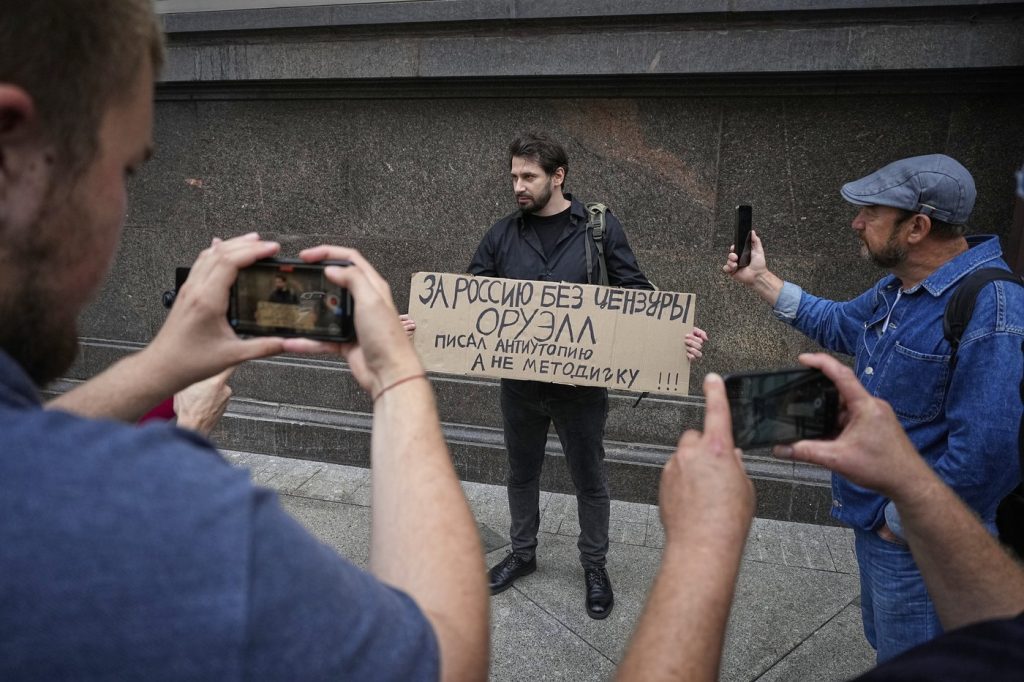Online access in Russia has become increasingly challenging, with reports of YouTube videos failing to load, independent media websites displaying blank pages, and cellphone internet connections being down for extended periods. These issues are not due to technical glitches but rather a systematic and comprehensive effort by the Russian government to exert control over the internet. Restrictive laws have been enacted, and websites that refuse to comply with state regulations have been banned. Authorities have developed advanced technology to monitor and manipulate online traffic.
While the use of virtual private network (VPN) apps can still bypass some restrictions, these tools are frequently blocked as well. This summer saw heightened internet access limitations, highlighted by widespread shutdowns of cellphone connections and new legislation penalizing users for searching for content deemed "illicit." Furthermore, the government has threatened to target the widely-used WhatsApp platform while introducing a new national messenger expected to be heavily monitored.
President Vladimir Putin has urged officials to "stifle" foreign internet services and create lists of platforms from "unfriendly" countries that should be restricted. Experts and human rights advocates have expressed concern regarding the increasing scale and effectiveness of internet restrictions, suggesting that the authorities are more skilled in these methods now than in previous years. Krasnoyarsk's approach to curbing internet freedoms is likened to "death by a thousand cuts," gradually inching toward complete control.
The push for internet control began after the 2011-12 protests when the internet was effectively utilized to challenge governmental authority. In response, regulations were put in place to tighten internet controls; this included website blocks, laws requiring data storage by service providers, and measures allowing the government to control and cut off internet traffic. Major tech companies faced pressure to store user data on Russian servers, but many resisted. Additionally, Russian authorities sought to implement a "sovereign internet" that could potentially disconnect from the global network.
The situation worsened significantly following Russia's full-scale invasion of Ukraine in 2022, during which major social media platforms like Twitter, Facebook, and Instagram were blocked. VPNs have also come under attack, complicating access to restricted sites. Reports surfaced that YouTube's accessibility was throttled deliberately. Cloudflare, an internet infrastructure provider, noted that websites using its services were being throttled, while independent news sites reported similar issues with other Western hosting providers. Cyber lawyer Sarkis Darbinyan suggests the authorities are trying to compel businesses to switch to Russian hosting providers that can be more easily controlled.
A significant portion of Russian websites relies on foreign hosting, and cutting off these services could render many sites inaccessible in Russia. Another worrying trend is the consolidation of internet service providers and companies managing IP addresses, with a report from Human Rights Watch detailing that more than half of the country's IP addresses are managed by seven major companies. Russian authorities are effectively tightening control over the internet landscape to censor information and manipulate online traffic.
In a recent development, a new law criminalizes online searches for vague categories of "extremist" materials, which may include LGBTQ+ content, opposition groups, and critical artistic works. This legislation is seen as a precursor to punishing not only service providers but also individual users. The potential blocking of WhatsApp, which had over 97 million monthly users as of April 2023, is also a pressing concern. The alternative, a new national messenger called MAX, is positioned to take its place, though its acceptance among users appears limited as of mid-year.
MAX is intended to function as a multifunctional application integrating messaging, online government services, and payment solutions. The service requires preinstallation on all smartphones sold in Russia and claims to share user data with authorities upon request. Historical patterns of testing internet severance trickle down to these new developments, which exemplify the government's increasing capabilities in controlling online space.
Experts suggest that while Russia is not fully isolated from the internet, ongoing efforts are methodically moving toward that goal. The combination of legislative actions, technological advancements, and strategic control of communication platforms illustrates the state's commitment to curbing online freedoms and isolating its internet from the rest of the world.











